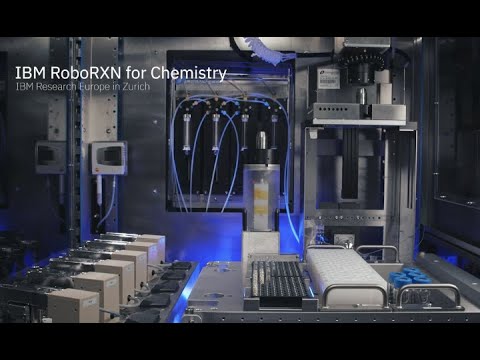IBM announces AI based chemistry lab: RoboRXN
IBM has announced on its blog page the development of an AI/cloud-based chemistry lab named RoboRXN. Its purpose is to help chemists develop new materials in a faster and more efficient way than the current trial-and-error process.
For thousands of years, humans have devised new materials by combining other raw materials, quite often through the use of treatments to instigate chemical reactions. However, the trial-and-error method—an oftentimes tedious and expensive endeavor—has remained relatively unchanged over the years. As part of its announcement, IBM suggests that in the modern age, it costs on average $10 million (and takes on average 10 years) for a company to develop a useful new material. IBM is hoping to change that by automating much of the process using a combination of artificial intelligence and cloud-based access. To that end, the company has expanded on IBM RXN for Chemistry, a free cloud-based app the company launched in 2018 that predicts the outcome of chemical reactions. RoboRXN goes further by allowing chemists to feed the system a molecule they want to make, and the system returns a step-by-step instruction guide along with a list of ingredients—essentially, a cooking recipe. IBM claims their new system will allow chemists to synthesize materials in unprecedented ways.
One example of how such a system might be used is in the synthesis of natural substances found to be beneficial. Scientists might find a plant in the Amazon jungle, for example, that slows the onset of Alzheimer’s disease. After close study, they find the active ingredient in the plant, for example: a certain molecule. Traditionally, the next step would be to head into the lab to try to figure out how to make that molecule—a process that could take years, hence the hefty price tag. With RoboRXN, IBM claims, all the chemist simply submits the particulars of the molecule and shortly thereafter receives explicit instructions on how to make that molecule. There are some caveats, of course: there is no guarantee that the formula the system arrives at would be cost-effective, for example. Also, in its current configuration, the system is limited to handling just five synthetic steps

